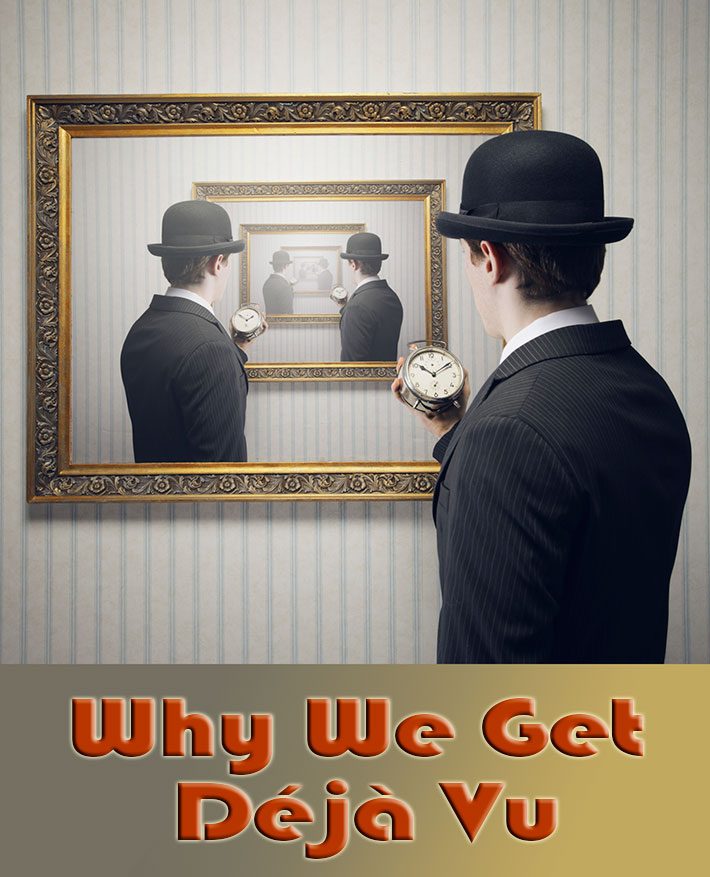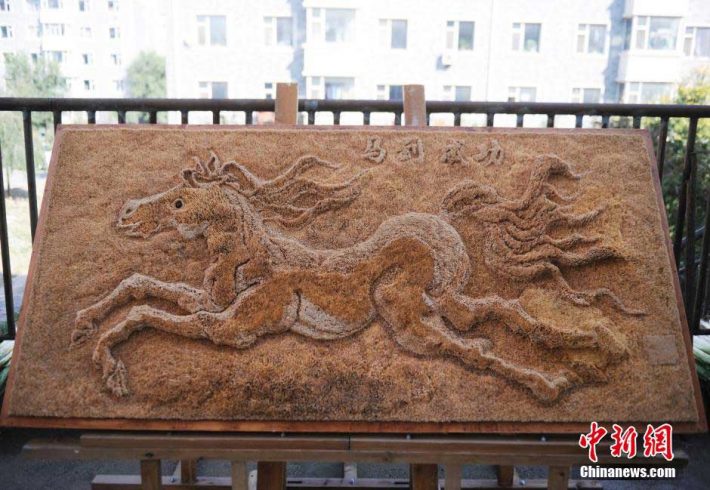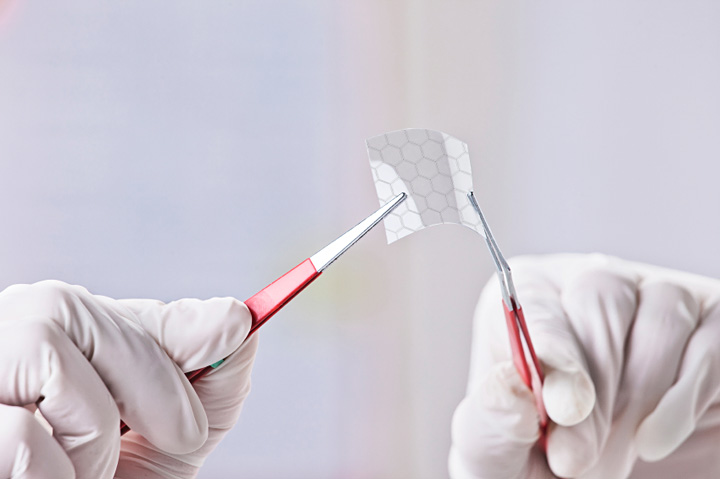
If you’ve ever found yourself in a situation or place that feels all too familiar, as if you’ve been there before, you’re likely experiencing deja vu. In fact, you might have even said out loud in these instances, “I’m having deja vu,” because what else can one say when things are feeling almost dream-like and surreal? Especially when you’ve never been to the place where the deja vu is happening.
In French, déjà vu literally means, “already seen,” even if you haven’t already seen what you’re seeing. Simply, it can feel like your mind is playing tricks on you, but of course, when it comes to all things related to the brain and brain function, it’s far more complicated than that.
“Deja vu occurs because the brain uses both a ‘fast’ process of immediate sensation and memory, and a ‘slower’ process to integrate past memories and present experiences,” Dr. James Giordano, Professor of Neurology at Georgetown University Medical Center, Washington, D.C., tells Bustle. “These processes involve a number of brain networks, including regions of the sensory cortex that function in sight, hearing, touch, smell, etc.; networks of the hippocampus and temporal lobe that function in memory; and areas of the limbic system and prefrontal cortex that function in decision-making.”
It’s a bit confusing, but considering the result, it may be worth the mild confusion.
7 Reasons why you experience deja vu
Things Have Become Out Of Sync In Your Brain
According to Dr. Giordano, although those two aforementioned “pathways usually work in a harmonious way, sometimes they become ‘out of sync’.” This happens when a situation triggers a “strong response of the ‘fast’ pathway, and the ‘slow’ pathway then catches up fractions of a second later.”
There’s A Neurological Mismatch
Because even the brain isn’t perfect, there can be a temporary mismatch that can mess with our memory. This explains why something that has never occurred can feel like it has.
“Networks of the temporal lobe and frontal cortex ‘interpret’ this mismatch and we experience this as as a memory playing out in real time,” says Dr. Giordano, “which makes it seem as if we’re ‘re-experiencing’ something that is actually new.”
A Glitch Is Throwing Things For A Loop
“Because déjà vu often occurs suddenly — with no warning — and is fleeting in duration, it’s incredibly hard to study in a clinical setting in a healthy population,” Neuroscientist & Holistic Wellness Expert, Leigh Winters, tells Bustle.
But, like Dr. Giordano, Winters agrees that through the studying of the medial temporal lobes, the rhinal cortex, and the hippocampus, it does come down to how the brain processes memory and the occasional mismatch. Making it somewhere between a memory error and a “neurological impulse glitch.”
“Taking it a step further, it might be possible that deja vu occurs when you detect familiarity, stimulating the rhinal cortices, but don’t activate the hippocampus, which helps you recall more concrete memory details,” says Winters. “Some propose that this is why deja vu has that eerie feeling of semi-remembering, or feeling like you’ve been there before but can’t seem to put your finger on it.” Because, let’s be honest, who hasn’t felt a sense of eeriness when it comes to deja vu?
If You’ve Been Diagnosed With Epilepsy
“It has been reported that some with epilepsy experience this phenomenon right before a seizure — specifically when seizures begin in the MTL, an integral brain region for long-term memories and events,” says Winters. “By isolating neuronal changes in the rhinal cortices, it’s thought that deja vu is largely caused by electrical impulses gone awry.”
Although this doesn’t mean you should run to the nearest neurologist the next time you experience deja vu, as Winters points out, it is a phenomenon that can happen to those who are diagnosed epileptics before a seizure. So, no, deja vu doesn’t mean you suddenly have epilepsy.
You’re Young
“About 60-70 percent of people report having deja vu, but it’s likely that it occurs more commonly,” says Dr. Giordano, “and deja vu occurrences are generally more common in younger people.”
While this isn’t to say that as you get older your chances to experience deja vu will vanish, it is to say that when it happens, as fleeting as it might be, you should definitely enjoy it. It really is a remarkable phenomenon that shouldn’t just be dismissed.
You’ve Lived A Past Life
Although the chances are slim that you’ll find a neurologist who agrees with this assessment, if you believe in past lives — a belief you’re completely entitled to — this “reason” is worth noting.
“Beyond neuroscience, many in the field of psychology have their own thoughts about what’s going on when we experience this feeling that we’ve already seen or experienced a situation,” says Winters. “For example, some parapsychologists think deja vu is connected to something we experienced or were connected to in a past life. But one thing’s for sure — as brain imaging techniques improve, so will our understanding of deja vu.”
Your Brain Is Working
“Deja vu is actually a good sign, and seems to reflect the brain’s ability to process memories at different levels and at differing speeds,” says Dr. Giordano.
Ultimately, deja vu is further proof that the human brain is amazing. If a “mismatch” or a “glitch” can result in something so extraordinary, it’s a true testament to just how remarkable it is. So the next time you experience deja vu, no matter how eerie it may feel in the moment, embrace it for the fantastic “glitch” it is.




Leave a Reply